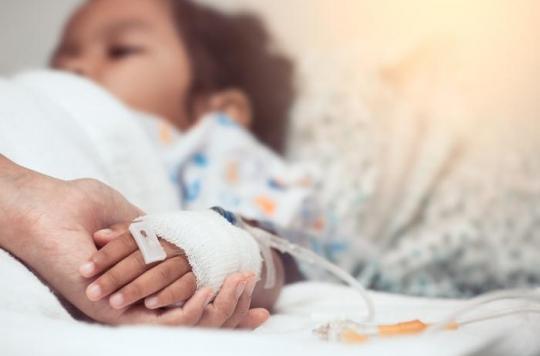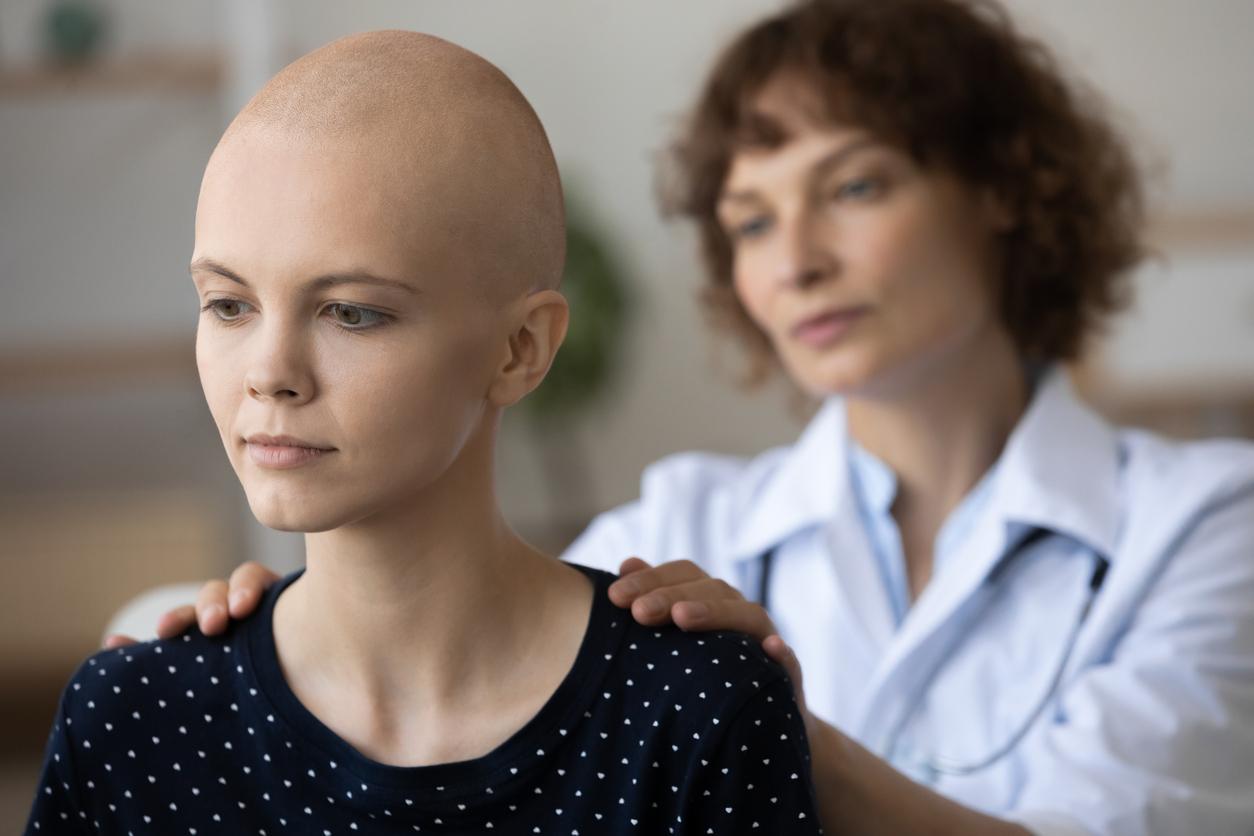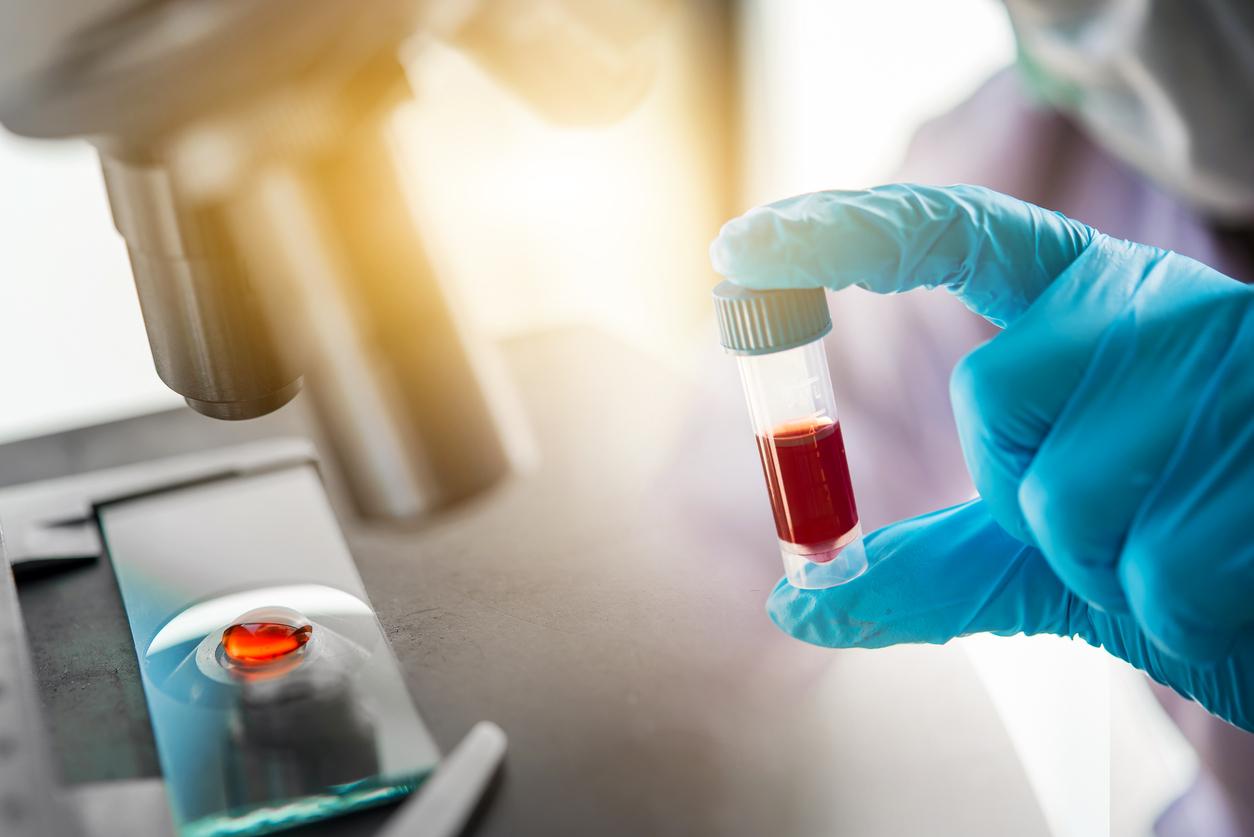Dr. Valérie Sugg, oncology psychologist and author of “Cancer: support” (Kawa editions), tells us about her 20 years spent in an oncology department where she dealt with the fears and hopes of patients, becoming sometimes the last confidant of these suffering souls.

A cancer psychologist for 20 years, Valérie Sugg has supported 17,000 people directly or indirectly affected by the disease. Installed in a service where death is omnipresent, she has come to terms with the fears and hopes of each of them, sometimes becoming the last confidant of these suffering souls. Humanly committed, dedicated, touched, she recounts without shame what she saw and experienced in a poignant book entitled Cancer: support (Editions Kawa).
Assimilate the diagnosis
“Twenty years ago, doctors didn’t talk about cancer. That’s why we called them oncologists. We talked about cysts, nodules, masses, but the word ‘cancer’ was scary”, she remembers. Even today, some people prefer not to know too much, not to hear the word. Although in general, “identifying the enemy is extremely important to know what we are going to fight. But I always say that we do not have to choose for the patient what he is able to hear or not, so I’m careful to use the same terms as them”.
The trick is to respect the patients’ perception of their disease and the importance they want to attribute to it. The diagnosis of cancer is a shock to many. “They know what they have, but not everyone is ready to assimilate it immediately. Some will need a few minutes, a few hours, or more”, explains Valérie Sugg.
The psychologist illustrates her point by recounting this memory: “a doctor from the service in which I worked asked me to attend the announcement of the diagnosis that he was going to make to his patient suffering from prostate cancer. he exchange lasted an hour, the doctor drew a drawing of the prostate, of the lesion in question, then detailed the possible development of the disease and the treatments, before answering the patient’s questions. Leaving the room, the patient said to his doctor: ‘Oh thank you doctor I was so scared it was cancer.’ My stunned colleague inquired what he had missed, but it was the patient. -even who was not ready to assimilate the news at that time”.
Guilt and old pains
After the diagnosis, feelings can intertwine. Anger, sadness, anxiety, but also guilt. “I have often had patients in tears wondering what they had missed or done wrong to deserve this. Why them? Why Now? They need to find meaning in what is happening to them. My support work is to help them understand where this idea of fault comes from” and often, past situations or events are at the origin of this pattern of thoughts.
Does the therapy finally help them heal old wounds? “Yes, because it’s not necessarily about cancer that they talk to me first, but about other past events (death, trauma, guilt-inducing events, etc.). The disease often brings up old painful problems, not completely healed. Like this woman who called me before she died to tell me that her son was not her husband’s.
After cancer
How do you live after cancer? Post-cancer is a period of “completely denied” suffering, laments the psychologist. However, the stigmata of the disease, whether physical, mental or psychological, are still very present. “We are talking about a pathology for which there is no examination to know if a cancerous cell remains. And the patients know it. The anxiety that it is not over is there. Sometimes the disease has also accentuated difficulties already present such as tensions in a couple or the rejection of a family”.
The “quality” of post-cancer varies from person to person. This period is often very difficult “for mutilated people”, from whom cancer has stolen one or even several parts of the body. “Women who have had a mastectomy, for example, or patients who have to wear a pocket under their T-shirt to divert urine and scum which are no longer expelled naturally”. Returning home, work, sexuality and social life can be significantly affected. Stigmatization, rejection, abandonment, fear of a recurrence, physical and psychological suffering… in general, the post-cancer period is often a difficult period to live through.
For some, however, the disease generates a beneficial awareness. “Some people change jobs, companions, do what they had never allowed themselves to do. Sometimes this ordeal helps them to feel guilty about everything, to focus on the essentials, on their desires”. The postcards, sent from all over the world, hanging in Valérie Sugg’s office testify to this renewed energy that emerges in certain patients in remission.
The loved ones, those forgotten
And relatives in all this? “I have always found that the healthcare teams are very uninterested in relatives, but now that we are doing outpatients and we need them to invest in care at home, we call them all the time. following”. These worried, powerless and often devoted loved ones, whose role and sufferings are neglected.
“The relatives manage a lot of things, recalls the psychologist. They answer the phone to give news of the patient when no one takes theirs, get up at night for care, accompany, support. Their role is colossal, it is for that I also received them. Like this dad who came in consultation during the treatment of his son suffering from jaw cancer, because he only had this space to crack. Then there are the children. Who speak little, but who express their concern in other ways: “aggressiveness towards the sick parent, or on the contrary close relationship, behavioral or concentration problems at school, wetting the bed, etc…”.
Sick children understand that they are
Valérie Sugg has also accompanied sick children and families. “Children realize that they are sick and measure its seriousness through the looks of their parents, caregivers, whispers. They know very well what is happening to them. Sometimes they protect their parents by pretending that everything is fine. Well, it doesn’t matter.”
A life lesson
How do we manage to endure so much suffering? “We do what we can, sometimes we are disarmed, moved, very angry because we see people we adore leaving in terrible suffering. I suffered. I tried to give the best of me for 20 years. I went to see a psychologist to talk to her about the most difficult situations and to question myself, to try to find out what I could have done better. Then there is sport, family life” , confides the psychologist to us.
And finally, there is the life lesson, gratitude. “You have to measure your luck. All these patients who tell you before leaving that life is beautiful and that it’s an incredible chance that you have to take advantage of. It’s such a wealth, such an honor to rub shoulders with these people. They trusted me by entrusting me with intimate things, or for me to be there until the end”. Valérie Sugg recalls in her book and this interview, how difficult cancer is, during and after, for patients and their loved ones. “There were a lot of tears, what did I cry while writing this book”. But didn’t we need to know all that to open our eyes?

.

















